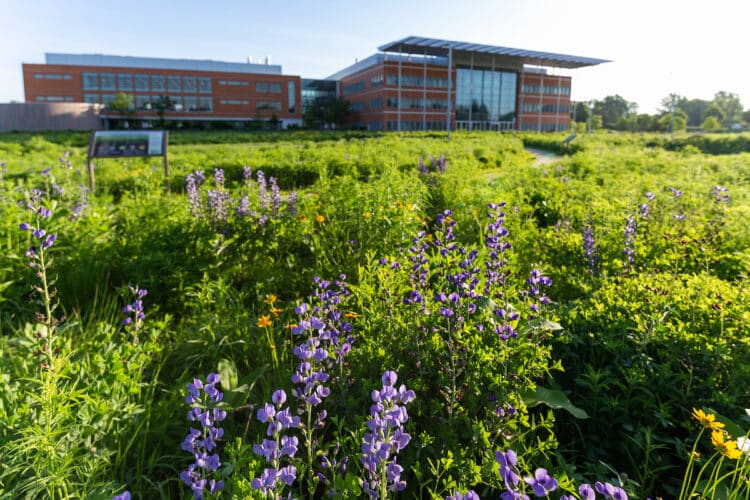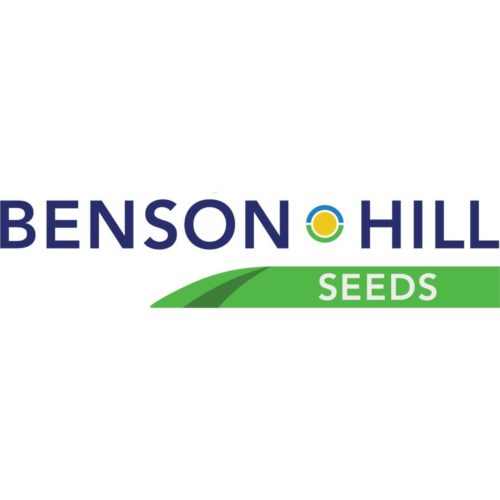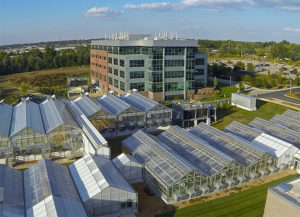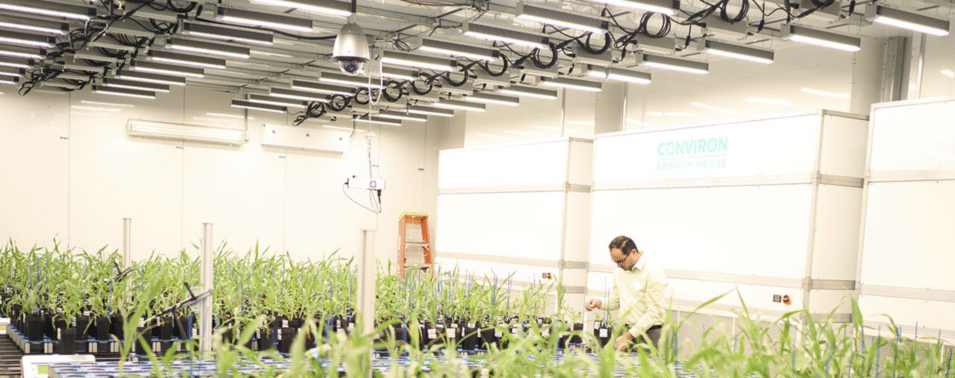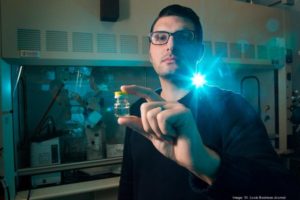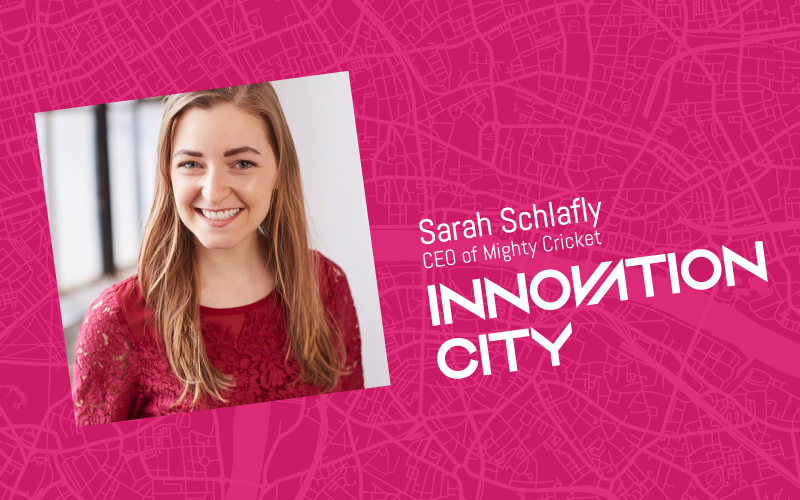
Mighty Cricket Awarded $650,000 USDA Grant to Transform Food Waste into Cricket Feed
To the outside world, Mighty Cricket sells protein powders, but founder Sarah Schlafly's ultimate plans have long been grounded in developing the means to sustainably produce an environmentally friendly alternative protein source.
Mighty Cricket, the St. Louis startup famous for recommending that you eat crickets as an environmentally sustainable source of protein and alternative to meat has been awarded a $650,000 grant from the U.S. Department of Agriculture, National Institute of Food and Agriculture (USDA NIFA). The grant will fund a groundbreaking project to convert pre-consumer food waste from the St. Louis region into nutritious cricket feed, and advance the company’s mission to produce sustainable, clean protein.

Mighty Cricket Farming
This latest win for Mighty Cricket founder, Sarah Schlafly, who was recently featured in the St. Louis Business Journal, marks a second phase in grant funding and follows Small Business Innovation Research (SBIR) grant of $131,500 awarded by the USDA last year to build a cricket farm.
Her company processes crickets into a fine, nutrient-rich powder that serves as a protein supplement. Consumers can purchase Mighty Cricket’s protein powders in chocolate, vanilla, and unflavored varieties through Amazon and the company’s website, mightycricket.com.

Executing a Five Year Plan: Mighty Cricket Was Always About Much More Than Protein Powder

Recalling an unpublished interview I conducted with Sarah, five years ago(!), I’m thrilled to share how this latest news represents a significant step forward in her long-range plans for Mighty Cricket. In particular, it addresses the food waste, sustainable food production and protein sustainability challenges that have consistently informed her vision of the wider role the startup can play.
“My heart has always been in providing clean food for people of modest income. Free range chicken and grass fed beef is a healthier option for meat eaters, but that’s never going to be available to people of modest income. It just takes so many resources, that it’s always going to be expensive,” Sarah told EQ in that phone conversation.
“Whereas crickets, and other edible insects, require so few inputs, so they have the potential to become a highly equitable food source. That’s kind of the heart behind it. I would say that’s definitely what keeps me going; keeps me waking up in the morning, jumping out of bed and ready to share crickets, to all of the U.S.”
Sarah Schlafly talking to Jonathan Allen in a recorded interview on September 9th, 2019.
Speaking for myself, I must admit to having perceived the wide variety of flavored protein powders that Mighty Cricket offers as ‘the ends’ of her plans for the startup. Albeit brilliantly, with an amazing social media strategy, I honestly thought Mighty Cricket was “just” selling protein powders.

In fact, as Sarah has always asserted —and did in our conversion of five years ago— what she’s most committed to achieving with Mighty Cricket is developing ‘the means’ to generate a genuinely sustainable food source.
Now, with this SBIR grant, she’s fully executing on her core vision for the startup: by diverting pre-consumer food waste that would otherwise end up in landfills and converting it into nutrient-rich cricket feed, Mighty Cricket is building a circular economy approach to protein production.
BioGenerator Helped Mighty Cricket Execute on the Bigger Vision
“Mighty Cricket’s long-term strategy is to develop cricket farming and processing technologies that will support the industry supply chain,” Sarah told EQ via email. “This food waste grant is just the beginning of our extensive list of research applications, from disease prevention to climate change resiliency.”
In a Linked post, Sarah credits BioGenerator as a critical piece in the puzzle to securing the SBIR grant:
“We couldn’t have achieved this without BioGenerator Ventures… They exposed us to SBIR program and provided us with resources to support us through the process.”
The two-year grant builds upon the successful completion of Phase I, during which Mighty Cricket identified and secured approximately 11,000 pounds of weekly food waste from local partners, including Companion Bakery and Marson Foods. The team demonstrated the viability of their approach by successfully feeding the waste to crickets, which subsequently reproduced and thrived.
Phase II objectives focus on optimizing the cricket diet for both growth and flavor enhancement. The company plans to develop and patent their innovative feed formulation, marking a significant milestone in sustainable protein production.
What This Means for St. Louis
St. Louis now has another promising protein startup to follow in the footsteps of Benson Hill, who produce sustainable non-GMO soy protein, which was in especially high demand during the plant-based burger boom that kicked off around 2019. The trend continues today and the meatless market is projected to reach over $23BN within the next decade, according to Future Market Insights.

